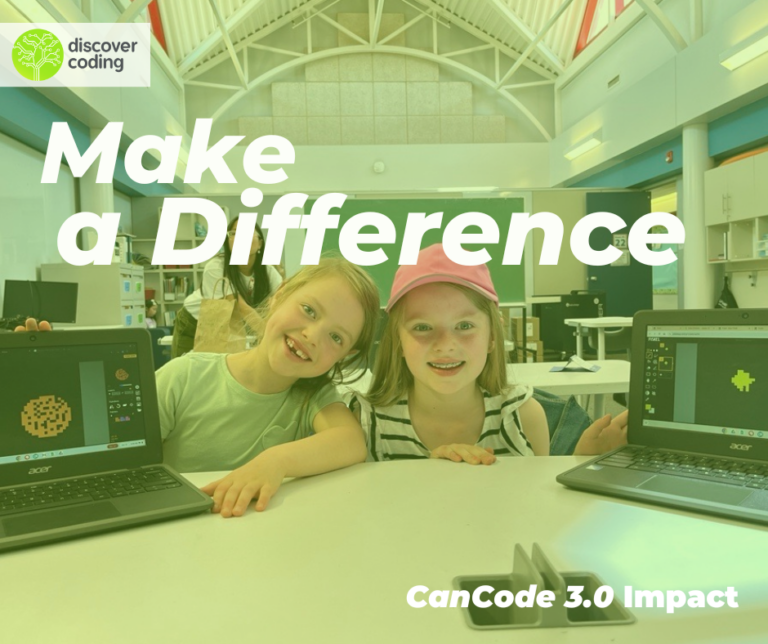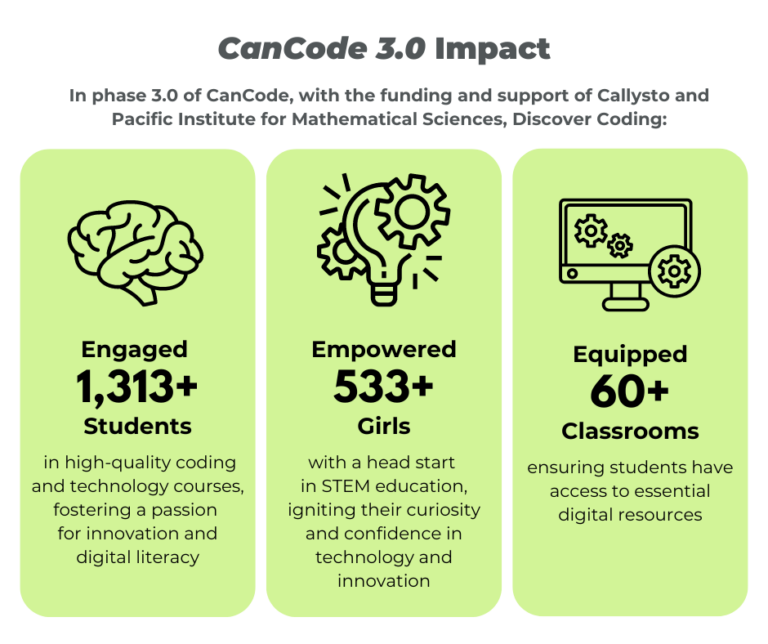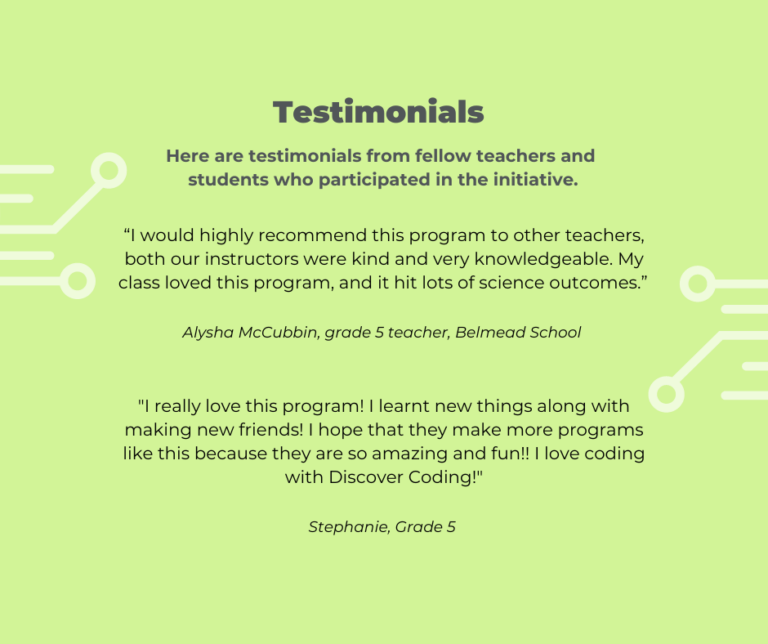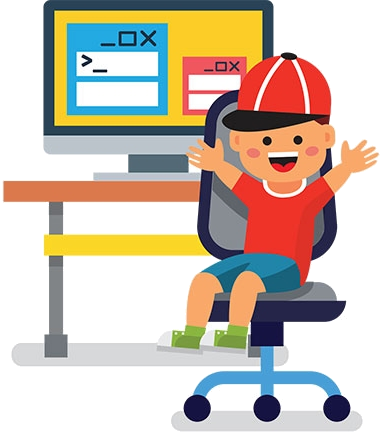
Did you know that more than 1,313 students across Canada participated in free coding classes? This collaboration between Discover Coding and CanCode made it possible for children to delve into coding and explore the world of STEM.
What is CanCode 3.0?
This initiative was to empower teachers and students with new tools and resources for programming and computer science, which are essential skills for the digital future. Discover Coding worked with Callysto, PIMS (Pacific Institute for the Mathematical Sciences), and the CanCode program (federal funds) to bring programming to schools across Canada. Prior to starting this initiative, we had delivered this program to over 1300 students and received several positive testimonials from teachers. Best of all, this opportunity was provided at no cost to schools or teachers! Children had the opportunity to try those free coding classes, expanded their skills and enjoyed themselves while connecting with peers in a new way.
What Discover Coding Delivered
Our students are immersed in a digital world, yet few understand its fundamental workings. Learning to code exposes them to the foundational mechanics of their digital tools, from computers to microwaves, revealing the widespread influence of coding in daily life. This knowledge empowers students, enhancing their device control and understanding of its broader impacts. Moreover, coding develops crucial 21st-century skills like problem-solving, critical thinking, collaboration, and creativity. Our diverse team of instructors, including teachers, engineers, computer scientists, and game developers, are passionate about fostering creativity and innovation in technology. We introduced basic coding concepts to students and teachers. Our expert instructors were brought in-person to classrooms to teach Python programming, physical computing with Micro:Bits, and even computer building!
We brought the super power of coding into schools all over Edmonton, Grande Prairie and surrounding areas. We reached underrepresented groups such as rural students, indigenous youth, and girls.
Discover Coding’s Impact
Thank you for giving us the chance to do what we love: teaching coding to students who may not have had access to such courses. We believe coding is crucial for the future, and we brought our positive energy to help kids explore and experiment with technology. The impact of this funding has been amplified by supporting teachers and schools with valuable resources and platforms for ongoing learning.
The success of those programs reflected a strong student desire to learn coding and technology, emphasizing the importance of investing in Canada’s future development. This funding represented a step toward fostering creative problem-solving and inspiring children to use code and technology to improve the world around them.

Highlights from the Initiative
We held all-girls workshops that were hits and had long waitlists. The presence of female instructors and an all-girls environment fostered a safe and engaging space for girls to explore STEM interests. Encouraged by the program’s success, we plan to expand our offerings of all-girls coding workshops in the future.
Another highlight was the BUILDING COMPUTERS! Thanks to our partners Alberta Computers for Schools for donating hardward kits. Students learned basic computer hardware skills applicable to everyday devices. Students had understood the components of a computer to take apart and put together computers, so they can understand more about everyday devices that they use or consume.
Students also enjoyed building and connecting computers to everyday devices, enhancing their understanding of processing power and memory essential for tech purchases. Some were motivated to research gaming parts after demystifying computer components. Micro:Bit projects further engaged students in physical computing, where they designed games like Rock, Paper, Scissors and Time Reaction challenges. This hands-on approach fostered a positive attitude toward coding and STEM, with many applying problem-solving skills to their favorite games and apps. Our team focused on relatable applications, such as getting students to code their own password checkers or phone battery checkers.
Guest instructors shared their stories about their STEM journey, careers and/or companies. Kids were especially excited to learn Ryan Janvier’s stories from what sparked his interest in technology to creating his own tech company to provide technology solutions to Indigenous businesses. Other instructors shared their gaming development projects. Learning about local talent helped spark interest in STEM for many kids!


